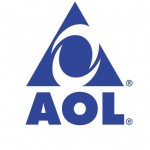Back in 1996, like most people, I was using a 56k baud modem to dial into AOL in order to hook up to the internet. Yes, the internet existed back then even if you didn’t know what it was.
 At the time, AOL was a “safe harbor” of sorts. An intermediary step between the user and the wild west of the big bad internet. Sort of like Facebook today. Along those lines, AOL used a number of automated filters and gates to filter content. Since most people were limited to dial-up AOL wasn’t filtering people’s photos, but instead filtering out “offensive” words. Which was fine of course, until residents of Scunthorpe, North Lincolnshire, England found that they could not create accounts with AOL. They were blocked from signing up for the service because their town name, Scunthorpe, contained the offensive string of characters “cunt,” and AOL was automatically blocking them (Google made the same mistake years later). This was dubbed “The Scunthorpe Problem.”
At the time, AOL was a “safe harbor” of sorts. An intermediary step between the user and the wild west of the big bad internet. Sort of like Facebook today. Along those lines, AOL used a number of automated filters and gates to filter content. Since most people were limited to dial-up AOL wasn’t filtering people’s photos, but instead filtering out “offensive” words. Which was fine of course, until residents of Scunthorpe, North Lincolnshire, England found that they could not create accounts with AOL. They were blocked from signing up for the service because their town name, Scunthorpe, contained the offensive string of characters “cunt,” and AOL was automatically blocking them (Google made the same mistake years later). This was dubbed “The Scunthorpe Problem.”
Despite the well-intentioned filtering of AOL and Google, they inadvertently wiped a town off a the web because of automation. With the influx of people coming online and the overwhelming deluge of information created – it’s impossible to edit or curate the web by hand. There are too many people and too much information – automation is inevitable. But automation lacks finesse or any sense of nuance. A human, flawed as they might be, can understand the name of a town versus derogatory slang.
And despite that it’s been 15 years since these problems began to appear, problems haven’t ceased. From Wikipedia:
- In June 2008, a news site run by the American Family Association censored an Associated Press article on sprinter Tyson Gay, replacing instances of “gay” with homosexual, thus rendering his name as “Tyson Homosexual”.[21]
- The word “ass” may be replaced by “butt”, resulting in “clbuttic” for “classic” and “buttbuttinate” for “assassinate”.[22]
- In December 2011, it was reported that software used by Virgin Media had filtered words including “Arsenal” (for “arse”), and “Canal” (for “anal”).[23]
Nook’d
Most recently, a blogger had received a Nook and decided to purchase and read Tolstoy’s War and Peace on the device:
As I was reading, I came across this sentence: “It was as if a light had been Nookd in a carved and painted lantern….” Thinking this was simply a glitch in the software, I ignored the intrusive word and continued reading. Some pages later I encountered the rogue word again. With my third encounter I decided to retrieve my hard cover book and find the original (well, the translated) text.
For the sentence above I discovered this genuine translation: “It was as if a light had been kindled in a carved and painted lantern….”
During the conversion of the book to the Nook format, the publisher took the Kindle edition and ran a search and replace for ‘Kindle’ and changed every instance of it in the book (as opposed to just “The Kindle Edition” in the front matter of the book). In a few mouse clicks and keystrokes, a seminal work of Western literature was changed.
The End of Permanence
 The conversion of media from analog to digital was heralded as a means of archiving material forever. Media would be able to replicated at whim. But the very ease of multiplication also lends itself to manipulation. This is compounded by the death of ownership and the rise of licensing. If you own a physical copy of War and Peace – it exists as is forever. Notwithstanding differing translations and editing errors, you control the content of the physical book.
The conversion of media from analog to digital was heralded as a means of archiving material forever. Media would be able to replicated at whim. But the very ease of multiplication also lends itself to manipulation. This is compounded by the death of ownership and the rise of licensing. If you own a physical copy of War and Peace – it exists as is forever. Notwithstanding differing translations and editing errors, you control the content of the physical book.
As I noted two years ago, the rise of licensed media and always-on net connections inevitably leads to the remote alteration of content:
PopCap Rep: “The Estate of Michael Jackson objected to our use of the ‘dancing zombie’ in PLANTS vs. ZOMBIES based on its view that the zombie too closely resembled Michael Jackson. After receiving this objection, PopCap made a business decision to retire the original ‘dancing zombie’ and replace it with a different ‘dancing zombie’ character for future builds of PLANTS vs.ZOMBIES on all platforms. The phase-out and replacement process is underway.”
…
What if a user didn’t want the update? What if they wanted to keep the original Thriller-inspired zombie? Not an option. As soon as Steam was launched (required to play any game generally) it began patching out the old dancing zombie with the new one. The end-user was not given the option to keep what they purchased in its original condition – Popcap decided for them. All because the end-users did not technically/legally own the software – they merely licensed it.
In the above instance involving Popcap’s game “Plants v. Zombies,” it was not a question of an errant filter that misinterpreted a string of characters, it was an active decision by an IP holder to remotely alter content that had already be purchased by consumers. Popcap is free to do this because they only sold licenses to use the game, not the code itself. Vernor v. Autodesk, D.C. No. 2:07-cv-01189-RAJ (PDF download of opinion) held that:
a software user is a licensee rather than an owner of a copy where the copyright owner, in the documents included with the software packaging, (1) specifies that the user is granted a license; (2) significantly restricts the user’s ability to transfer the software; and (3) imposes notable use restrictions.
Vernor turned on number (2), whether or not a user could re-sell (CD-based) software. But an era of digital media in which content creators have the ability to “impose notable use restrictions” on its licensees could lead to a rise of alterations and filtering far beyond those seen in Scunthorpe, War and Peace on the Nook, or even Popcap. Perhaps more so than ever before, the power to selectively filter what people see, read, and hear will be able to placed in the hands of a very select few.
So while media can now exist forever, the question ceases to be whether or not one can obtain a copy of a book or song or game or movie.
The question is can you trust it?














